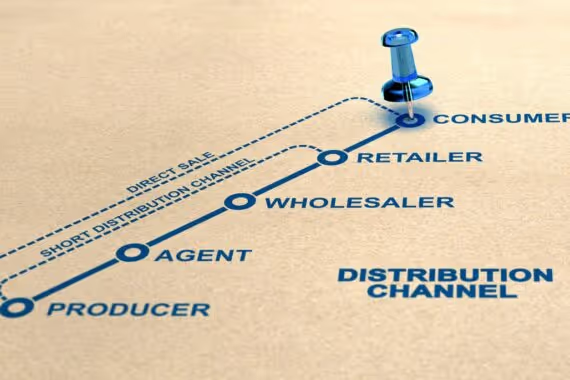Ensuring Business Success in the Wake of the Coronavirus

The Coronavirus is creating unprecedented challenges for businesses around the world. Businesses need to reconsider all aspects of their operations, agreements, and plans, and think creatively in the process. The U.S. Government has taken unprecedented action with its largest bailout in history, providing loans throughout the U.S. business sector, and changing regulations and requirements that impact sectors across the economy.
The CARES Act and Developing Operational Strategies & Plans

While the Coronavirus clearly poses a significant challenge, if businesses navigate it correctly they may be able to mitigate some of its negative impacts while potentially even discovering new opportunities. What should businesses do during this period to protect interests and mitigate risks, while trying to stay a step ahead?
U.S. Government Action: The CARES Act
An 880-page law, the Act provides $130 billion in funding to the medical and hospitality sector, allocating funding for supplies, devices, and medication. It also provides no more than $46 billion to the air transportation sector ($25 billion to passenger air carriers, and $4 billion for cargo carriers) and other businesses deemed critical to maintaining national security ($17 billion).

One of the most interesting aspects of the CARES Act are the loan provisions for small and medium sized firms through the Small Business Administration (SBA) — greatly expanding the number of businesses eligible for SBA guaranteed loan — and making the terms and process for obtaining these loans materially more attractive — while incentivizing companies to maintain their workforce:
- Paycheck Protection Program: The CARES Act provides $349 billion for small businesses through this SBA loan guarantee program. Congress developed this program to make loans available to qualifying business (generally under 500 employees) through certain banks, credit unions, and non-bank lenders. Given that these loans are 100 percent government guaranteed, rather than 75 percent in traditional SBA loans, lenders should find this Program attractive.
- Hospitality and food services firms have special provisions providing qualification if no more than 500 employees in any single location.
- The Program is available not only with for-profit corporations, but also certain nonprofit companies, independent contractors, and sole proprietors.
- Small businesses can borrow the lesser of $10 million or the 2.5 times the average total monthly payroll costs for the prior year. These funds can be used for qualified payroll costs (including benefits and compensation under $100,000), rent, utilities, and prior incurred mortgage/debt obligations.
- A key provision is that these loans may be forgiven, with proper documentation submission, in an amount spent during the 8-week period following the loan obligation for qualified payroll and other expenses. Forgiveness may be limited if the number of employees or employee pay is reduced during this period – basically incentivizing companies to retain staff.
- Very importantly, the loans are non-recourse and based on zero collateral – but assurances of need and use required.
- Covers the period from February 15, 2020, through June 30, 2020.
- Emergency Economic Injury Loan Grant Program. This program has been expanded and made more flexible for 2020.
- National Security. The CARES Act has earmarked up to $17 billion to protect businesses critical to U.S. national security.
Legal Obligations and Business Operations
Beyond federal government assistance, companies can take action to reduce legal and commercial risks. The following is a sampling of issues to be considered.
- Contractual Obligations. Reconsider contractual obligations, both as suppliers and customers. Can or should obligations be deferred, and what are your rights to modify obligations? Should you look at reducing your rental or lease obligations.
- Supply Chains. Given shifts in manufacturing as well as demand, it is key to examine supply chains and customer distribution and consider modifications.
- Revenue Protection. How can you protect your business and revenue streams if customers default because of the Coronavirus? Many protections can be incorporated in amended and novated agreements.
- Loss Reduction. How can you reduce losses from changed plans, conferences, collaborations, or acquisitions?
- Employment Issues. How do you manage employees and contractors given the Paycheck Protection Program and new provisions provided by the Families First Coronavirus Response Act. Beyond the CARES Act it is key to know your obligations under existing law.
- Taxation Matters. Multiple aspects of federal tax obligations are adjusted for 2020. It is key that you understand these changes to enable you to plan as effectively as possible.
- Debt Restructuring. It might be necessary or an opportune time to restructure debt. Now may be a time to seek more favorable credit terms and potentially even limited forgiveness.
While some of these challenges may be addressable through existing arrangements and provisions in current contracts, others will need well-crafted approaches with an eye to not only mitigate business loss now, but exposure to liability later.
About Akrivis Law Group, PLLC
Based in Washington D.C., Akrivis is located in the center of the U.S. Government programs provided by the CARES Act. We can help you navigate the CARES Act and protect your business.
On the corporate and legal front, we can help you review contractual obligations in a cost-effective and business-oriented fashion with a domestic and global perspective. Our background with corporate law, international transactions, and dispute resolution can help you understand your rights and obligations, and help us serve as your advocate in putting forth your strategy with customers and vendors. Our financial obligation restructuring experience can assist you in solving issues that may arise. Below are some areas:
- Risk Mitigation. Ultimate liability in non-performance issues such as delayed payments or deliveries can often be minimized if acted upon quickly. A review of contracts and commitments can help you understand options, be they contractual or other.
- Restructuring Agreements & Debt. We can help you facilitate financial modifications you may require as a result of this crisis.
- Negotiating Solutions & Dispute Resolution. We can help resolve disputes in cost-effective and timely fashion, avoiding the expense, time, and uncertainty of litigation, especially as the judicial system is facing unique challenges.
- Managing Multiple Legal Issues. We can manage multiple issues, bringing in and managing affiliated legal subject matter experts (e.g., employment counsel) as needed.
- Developing a Comprehensive Plan. Including an internal policy and communications for your personnel, as well as with your contractual counterparties, be they customers, venture partners, or vendors.
We would be pleased to consult with you about your business and the issues and help you navigate these challenging times.
For more information, contact Farhad Alavi at falavi@akrivislaw.com or +1.202.686.4859 or Michael Lyon at mlyon@akrivislaw.com or +1.202.415.1819.
This Client Alert is intended solely for informational purposes and should in no way be construed as legal advice. If you have any questions or are unclear on any of the subject matters addressed or discussed on this Client Alert, please consult a licensed legal professional.

.avif)







